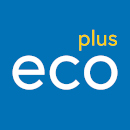
Materials of the Future
In many cases, the requirements of a sustainable and climate-neutral economy can only be met with new materials. Since 2007, the Plastics Cluster has been pursuing the vision of imparting skills in dealing with bioplastics to domestic companies in order to open up opportunities for them in a future market. The activities focus on plastics that are made from renewable raw materials or biodegradable materials or both. In recent years, the concentrated material know-how of the cluster partners has been increasingly used to solve the particularly demanding task of designing packaging that makes food last longer.
The measures required for this apply to all links in the value chain: The types of raw materials available on the market were examined, their properties checked, the processing of bioplastics tested with the usual processing procedures and methods for characterizing the material were determined. Finally, the manufactured products were tested and, in particular, their behavior in contact with food was examined.
This led to the development of numerous building blocks:
- As part of the “N packt’s” initiative and the CORNET project “Bio-Packing PLA”, the Plastics Cluster, together with national and international partners, focused on the material polylactic acid (PLA).
- The knowledge gained was distributed among material suppliers and processing companies, as well as clients in the plastics industry.
- This resulted in numerous follow-up projects for the development of marketable products, also with other organic-based plastics such as thermoplastic starch (TPS).
- Companies and experts involved in the topic exchange information at regular meetings of the so-called “biopolymer team”, which in turn results in larger cooperation projects.
- The BioSet project worked on the development of starch and cellulose-based adhesives and tested various formulations in wood applications.
- In the BioKAVA project, existing PLA-TPS blends are being further developed into basic formulations with certain properties required in injection molding and tested in three specific applications.
- In the “Stop Waste - Save Food” project, work was carried out on the overall ecological and functional optimization of packaging solutions for certain food groups and the results were summarized in a guide.
Important partners on this path are the Österreichische Forschungsinstitut für Chemie und Technik (OFI), the University of Natural Resources and Life Sciences Vienna/Department IFA-Tulln, the Wood K plus Competence Center, the Vienna University of Technology, the Agrana Research & Innovation Center (ARIC), the Naku company, the transfer center for plastics technology in Wels and numerous companies from the Austrian food and packaging industry and the retail industry.
One of the challenges in this sector is to use new materials to meet the strict requirements placed on food packaging. Another hurdle is the tarnished image of the plastics industry, which is leading to a decline in the number of well-trained specialists that are urgently needed and to the outflow of research funds to other areas.
Examples:
Project "Stop Waste – Save Food"

